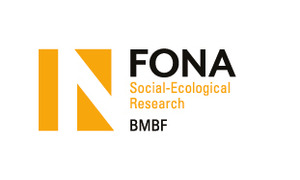(German version below)
On February 14, our partner, the Social Entrepreneurship Netzwerk Deutschland e.V. (SEND), presented the 2nd German Social Entrepreneurship Monitor (DSEM). The annual study is published in cooperation with the Otto von Guericke University Magdeburg and is supported by SAP SE. The DSEM surveys social entrepreneurs about the development of their organization and highlights trends and challenges in the sector.
Social entrepreneurs as drivers of societal change
In contrast to traditional companies, social enterprises are characterized by the primary objective of developing solutions for a social challenge instead of generating profits. It is therefore not surprising that this is the main motivation for starting a business for 96.7% of the social entrepreneurs surveyed. In addition, the possibility to use their personal strengths in a meaningful way and to fulfill themselves play a central role. In line with this, for the vast majority of social entrepreneurs, the social impact of their company is just as important or even more important than financial returns. The comparatively high proportion of women among social entrepreneurs is striking. A total of 46.7% of the study participants are female, while women still make up the significant minority in the German start-up scene.
The DSEM also underscores the local embeddedness of social enterprises: less than a quarter of the companies state that they operate in an international environment. For many of them, local and regional markets and a strong local network are of great importance. This is why 84% of the social entrepreneurs surveyed stated that they cooperate with associations or non-profit organizations on a long-term basis. Cooperation with profit-oriented companies and public bodies is also of great importance to the respondents. Overall, more than three quarters of the DSEM social entrepreneurs work with cooperation partners from at least three sectors.
Innovative strength for social impact
When asked about the areas in which efforts are being made to achieve a positive impact, “high-quality education”, “sustainable consumption and production”, “health and well-being” and “decent work and economic growth” are most frequently mentioned. Almost all companies state that they present an innovation on their regional market. 42% also rate themselves as innovative across the EU or even worldwide. These results accord with a study by the KfW from 2019, which also attested young social entrepreneurs a high level of innovative strength.
Companies’ own supply chains are often described as having a strong leverage effect for achieving social impact. Over 90% of the respondents relying on supply chains say that fairness and sustainability are taken into account. One example of this is the company tip me, that wants to establish an authentic connection between consumers and producers through direct tips. Social entrepreneurs typically pursue the principles of fairness and transparency also within their own organizations. About two thirds of them state that they communicate openly about salary and promotions. Almost half involve employees in strategic decisions.
Insufficient political support
Nationwide, politics received an average grade of 4.6 from respondents (with 1 being the best, 6 the worst grade). There was no positive trend compared to last year. Germany also performs poorly in international comparison: In the study "The best countries to be a social entrepreneur 2019" by the Thomson Reuters Foundation, the Federal Republic only ranks 34th in the category "Political support".
According to the DSEM, the lack of financing opportunities and a hard to understand procedure of allocating public grants are among the greatest challenges. In addition, many social entrepreneurs criticize the lack of a suitable legal form in Germany that covers both the social and entrepreneurial aspects of the organizations. Some social entrepreneurs therefore opt for hybrid forms, for example consisting of a mix of association and limited liability company, while others have discovered the cooperative model for their projects.
In order to further strengthen social entrepreneurship in Germany, the DSEM provides clear recommendations for policymakers, including the development of a social innovation strategy at the federal level, better financing options and the increased establishment of start-up and innovation centers specifically for the social sector. In this context, SEND Chairman Markus Sauerhammer already pointed out last year in a discussion with Munich Startup: "It is important that politicians take action! The division of society continues to grow and often people are working on the effects of our social challenges rather than on their causes“ (translation by authors of this text).
Link to the report: https://www.send-ev.de/uploads/DSEM2019.pdf
Sources:
https://www.send-ev.de/2020-02-14_der-2-deutsche-social-entrepreneurship-monitor-ist-da
https://www.munich-startup.de/46365/markus-sauerhammer-send/
Text from Lena Falk-Walter
Zweiter Deutscher Social Entrepreneurship Monitor stellt Potenziale und Herausforderungen von Sozialunternehmen vor - Politik erntet die Note 4,6
Deutschlands Sozialunternehmen sind in vielen Branchen aktiv und entwickeln Lösungen für gesellschaftliche Herausforderungen. Dabei legen sie Wert auf Fairness und Transparenz, auch beim Umgang mit den eigenen Mitarbeiter*innen. Die Unternehmen sind gut vernetzt und arbeiten mit Kooperationspartnern aus unterschiedlichen Sektoren zusammen, wünschen sich jedoch eine bessere Unterstützung durch die Politik. Besonders fehlende Finanzierungsmöglichkeiten stellen viele Social-Entrepreneurs vor Herausforderungen.
Am 14. Februar stellte unser Praxispartner, das Social Entrepreneurship Netzwerk Deutschland e.V. (SEND) den 2. Deutschen Social Entrepreneurship Monitor (DSEM) vor. Die jährlich angelegte Studie erscheint in Kooperation mit der Otto von Guericke Universität Magdeburg und wird durch SAP SE unterstützt. Der DSEM befragt Sozialunternehmer*innen nach der Entwicklung ihrer Organisation und beleuchtet Trends und Herausforderungen des Sektors.
Social-Entrepreneurs als Treiber gesellschaftlichen Wandels
Im Unterschied zu klassischen Unternehmen zeichnen sich Sozialunternehmen durch die primäre Zielsetzung aus, Lösungen für eine gesellschaftliche Herausforderung zu entwickeln, statt Gewinne zu erzielen. Daher überrascht es wenig, dass dieses Motiv für 96,7% der befragten Sozialunternehmer*innen die Hauptmotivation zur Gründung darstellt. Daneben spielen auch die Möglichkeit, die eigenen Stärken sinnvoll einsetzen zu können und das Motiv der Selbstverwirklichung eine zentrale Rolle. Im Einklang damit ist für die große Mehrheit der Social-Entrepreneurs die gesellschaftliche Wirkung ihres Unternehmens genauso wichtig oder sogar wichtiger als eine finanzielle Rendite. Dabei fällt der vergleichsweise hohe Frauenanteil unter den Social Entrepreneurs auf. Insgesamt 46,7% der Studienteilnehmer sind weiblich, während beispielsweise in der deutschen Start-Up Szene Frauen noch immer die deutliche Minderheit bilden.
Auch unterstreicht der DSEM die lokale Verbundenheit der Sozialunternehmen: Weniger als ein Viertel der Unternehmen gibt an, im internationalen Umfeld tätig zu sein. Für viele sind lokale und regionale Märkte sowie eine gute lokale Vernetzung von großer Bedeutung. So führen 84% der befragten Social-Entrepreneurs an, dauerhaft mit Vereinen oder gemeinnützigen Organisationen zusammenzuarbeiten. Aber auch die Zusammenarbeit mit gewinnorientierten Unternehmen und öffentlichen Stellen nimmt bei den Befragten einen hohen Stellenwert ein. Insgesamt arbeiten mehr als drei Viertel der DSEM-Social-Entrepreneurs mit Kooperationspartner*innen aus mindestens drei Sektoren zusammen.
Innovationskraft für soziale Wirkung
Auf die Frage, in welchen Bereichen versucht wird, eine positive Wirkung zu erzielen, werden „Hochwertige Bildung“, „Nachhaltige/r Konsum und Produktion“, „Gesundheit und Wohlergehen“ und „Menschenwürdige Arbeit und Wirtschaftswachstum“ am häufigsten genannt. Fast alle Unternehmen geben in diesem Zusammenhang an, in mindestens einer Kategorie eine regionale Markneuheit darzustellen. 42% schätzen sich darüber hinaus als EU-weit oder sogar weltweit innovativ ein. Diese Ergebnisse decken sich mit einer Studie der KfW aus dem Jahr 2019, die jungen Sozialunternehmer*innen ebenfalls eine hohe Innovationskraft attestiert.
Ein häufig angeführter Hebel, für gesellschaftlichen Wirkung, sind unternehmenseigene Lieferketten. Hier geben über 90% der Befragten, die über eine Lieferkette verfügen, an, Fairness und Nachhaltigkeit zu berücksichtigen. Ein Beispiel dafür ist das Unternehmen tip me, das über direkte Trinkgelder eine authentische Verbindung zwischen Verbraucher*innen und Produzent*innen herstellen möchte. Die Prinzipien der Fairness und Transparenz verfolgen viele Social-Entrepreneurs auch in der Mitarbeiterführung. Etwa zwei Drittel geben an, offen über Gehalt und Beförderungen zu kommunizieren. Knapp die Hälfte bindet Mitarbeiter*innen in strategische Entscheidungen ein.
Nur ein „ausreichend“ für politische Unterstützung
Bundesweit erhält die Politik von den Befragten im Durchschnitt die Schulnote 4,6. Gemessen am letzten Jahr zeigt sich dabei kein positiver Trend. Auch im internationalen Vergleich schneidet Deutschland schlecht ab: In der Studie „The best countries to be a social entrepreneur 2019” der Thomson Reuters Foundation belegt die Bundesrepublik in der Kategorie „Unterstützung durch die Politik“ lediglich Platz 34. Dem DSEM zufolge zählen dabei fehlende Finanzierungsmöglichkeiten und eine schwer nachvollziehbare Vergabe von öffentlichen Fördermitteln zu den größten Herausforderungen. Zudem bemängeln viele Sozialunternehmer*innen, dass es in Deutschland an einer geeigneten Rechtsform fehlt, die sowohl die sozialen als auch die unternehmerischen Aspekte der Organisationen abdeckt. Einige Social-Entrepreneurs entscheiden sich daher für hybride Formen, zum Beispiel aus Verein und GmbH, andere haben das Genossenschaftsmodell für sich entdeckt.
Um Social Entrepreneurship in Deutschland weiter zu stärken, liefert der DSEM klare Handlungsempfehlungen für die Politik, darunter die Ausarbeitung einer Sozialen Innovationsstrategie auf Bundesebene, bessere Finanzierungsmöglichkeiten und den verstärkten Aufbau von Gründungs- und Innovationszentren speziell für den sozialen Bereich. In diesem Kontext machte SEND-Vorsitzender Markus Sauerhammer bereits im vergangenen Jahr in einem Gespräch mit „Munich Startup“ deutlich: „Wichtig ist, dass die Politik ins Handeln kommt! Die Spaltung der Gesellschaft nimmt weiter zu und an vielen Stellen wird eher an den Auswirkungen unserer gesellschaftlichen Herausforderungen gearbeitet als an den Ursachen.“
Link zum Report: https://www.send-ev.de/uploads/DSEM2019.pdf
Quellen:
https://www.send-ev.de/2020-02-14_der-2-deutsche-social-entrepreneurship-monitor-ist-da
https://www.munich-startup.de/46365/markus-sauerhammer-send/
Text von Lena Falk-Walter
18/02/2020



